SEC-S20W1: Who is a Programmer? What should you have done before to become a programmer in the future?

Hello steemians,
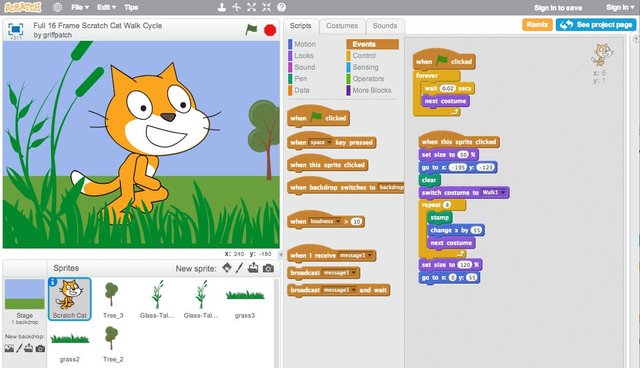
Since childhood, I have always been fascinated by technology. The idea of creating something from scratch using just a computer and a few lines of code seemed almost magical to me. Now, as an IT teacher, I have chosen to focus on both the theoretical aspects of computer science and the practical side of programming. It's a rewarding career, and my passion for programming has only deepened over time.
Recently, my son has shown an interest in becoming a programmer, which has reignited my reflection on what it means to pursue this path. I have been teaching him the basics of programming from a young age, encouraging him to explore the vast world of code. This essay will explore the dream of becoming a programmer, the obstacles and challenges one might face, and how we can move from dreaming to doing.
What Is a Programmer? |
|---|
Programmers are problem-solvers. They are individuals who use programming languages to develop software, websites, applications, and other digital tools that power our modern world. They break down complex problems into smaller, manageable tasks and then write code to solve these tasks. While some see them as merely technical wizards behind a screen, programmers are also creators, thinkers, and innovators.
To become a programmer, one needs not just technical skills but also creativity, persistence, and a willingness to learn continuously. The technology landscape is ever-changing, and what might be relevant today could be obsolete tomorrow.
The Road to Programming: Challenges and Benefits |
|---|
One of the first challenges anyone faces when embarking on this journey is understanding the sheer volume of information. There are countless programming languages, tools, and concepts to learn. For beginners, the most significant obstacle might be the fear of complexity — seeing endless lines of code and feeling overwhelmed. However, programming is all about breaking things down. With patience and dedication, each new concept becomes manageable.
On the practical side, some people may find learning how to think like a programmer difficult. It requires logical reasoning, problem-solving, and a structured approach to tasks. But here lies one of the benefits — as you develop these skills, you also improve your critical thinking and adaptability, which are valuable in many aspects of life.
Another potential challenge is the constant need for self-learning. Technology evolves rapidly, and a programmer must always stay up-to-date with the latest tools and languages. However, this can also be one of the joys of the profession. There’s always something new to learn, which keeps the work fresh and engaging.
The rewards are immense. Programmers have the opportunity to create solutions that can change lives, from developing useful apps to building systems that improve industries. There’s also job flexibility — with a computer and an internet connection, you can work from almost anywhere in the world. The demand for programmers is continuously growing, meaning there’s stability and potential for a successful career.
What Should Have Been Done Before to Become a Programmer Later? |
|---|
Reflecting on my own journey, I realize there are certain things I wish I had known earlier. First and foremost, building a strong foundation in mathematics and logic is crucial. Many programming concepts are based on logical structures, and the more comfortable I am with them, the easier programming becomes.
Another important aspect is to start early. I believe exposing my son to the basics of coding now will give him an advantage later on. When we are young, we absorb new information more easily, and learning programming as a child is like learning a new language. The earlier we start, the more fluent we can become.
In hindsight, I also wish I had focused more on problem-solving skills. While it’s easy to get caught up in learning different programming languages, the core of programming is the ability to solve problems effectively. This skill can be developed through puzzles, logical games, and challenging coding tasks.
From Dreams to Actions: How to Learn Programming |
|---|
Once I decided to pursue programming, the next step was figuring out how to learn. The great thing about programming today is that there are countless ways to learn — from self-study to formal education.
Self-Study: Many successful programmers are self-taught. With resources like online tutorials, forums, and documentation, it’s entirely possible to learn programming at your own pace. Platforms like Codecademy, FreeCodeCamp, and Khan Academy offer beginner-friendly courses that cover everything from HTML and CSS to Python and JavaScript.
Online Courses: If I prefer a more structured learning environment, online courses from platforms like Coursera or Udemy are excellent options. They offer a comprehensive curriculum, often designed by industry experts, and can be completed at my own pace.
Books: While online resources are great, books provide a more in-depth understanding of programming concepts. Some classics like “The Pragmatic Programmer” or “Clean Code” can help me understand not just how to code but how to think like a programmer.
Schools: For those who prefer traditional education, enrolling in a computer science program at a university or technical school is another option. These programs offer a structured, comprehensive education and provide a solid foundation in both theory and practice.
Mentorship and Networking: Having a mentor or joining a community of like-minded learners can be incredibly beneficial. Whether it’s through online forums, social media groups, or local coding meetups, learning from others' experiences can help me overcome challenges more quickly.
Teaching My Son to Code |
|---|
To encourage my son in his aspiration to become a programmer, I am also teaching him robotics. I use kits like LEGO Mindstorms and ESP32 to show him how to apply programming concepts to real-world projects. Working together on robotics projects allows him to see how code interacts with the physical world and develop a practical understanding of technology.
By involving him in programming and robotics activities from a young age, I hope to pass on not only technical skills but also a passion for innovation and problem-solving. It’s a learning adventure we share, and I’m confident it will lay the foundation for a successful programming career for him.
Through my courses and posts on Steemit, including the series "Teaching Robotics Using the ESP32 Board," I have developed a series of step-by-step lessons designed to introduce the fundamental concepts of robotics and programming. From the first lesson, which lays the foundations of using the ESP32 board, to the fifth lesson, which delves deeper into practical applications, each module is designed to guide learners, from beginners to advanced learners, through the creation of real-world robotics projects.
My goal is to make these skills accessible and engaging, using visual resources and hands-on demonstrations to illustrate the interaction between code and the physical world. By teaching my son and sharing this knowledge, I strive to foster a deep understanding and passion for technological innovation, preparing the next generation to excel in an ever-changing field.
| Lesson | Thumbnail | Link |
|---|---|---|
| Lesson1 |  | Link |
| Lesson2 | 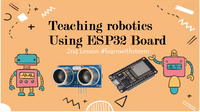 | Link |
| Lesson3 | 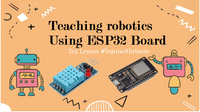 | Link |
| Lesson4 | 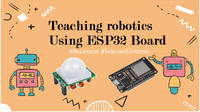 | Link |
| Lesson5 | 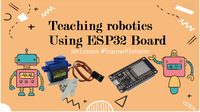 | Link |
Conclusion |
|---|
Programming is more than just a career, really it’s a mindset. It teaches you to think critically, solve problems, and create solutions. Whether you’re driving a bus or baking pies, anyone can become a programmer if they have the determination to learn and grow. While the path may be challenging, the rewards are well worth it.
For my son, I hope to pave the way by providing guidance, resources, and encouragement. And as I continue to teach others, I realize that programming is a lifelong journey of learning and discovery — one that I’m excited to continue and share.
Excellent!!! - I will write comments later
Thank you
I already gave a grade 10 when I read only 80% of the text and when I saw the answer to the main question. I would also like to note the very easy reading of the text. I translated it into Ukrainian in the browser, even Google translator did not distort the text anywhere. The text read, as we say in Ukraine, as if the river was flowing.
You have already opened the way to the next lesson, a little later, how will this week SEC-S20W1 end I would like to know how did it go?
Thank you very much for your positive feedback! I am glad that the text was easy to read and well translated into Ukrainian. It is always a pleasure to know that the content is accessible and fluid. Thanks again for your interest and support!
I would like to say about this post that you have explained the importance of programming very well. Becoming a programmer requires not only technical skills, but also creativity, persistence, and a habit of constant learning.
You have highlighted very important points like problem solving ability, understanding of coding basics, and the need to constantly learn new tools and languages. Also, he mentioned his experience of teaching his son programming and robotics, which is a commendable initiative for the new generation.
In conclusion, I would say that if you want to learn programming, you have to practice constant hard work and learning, and this path will not only lead you to a successful career but also sharpen your mental skills. .
Excellent post!
Your post is well presented. This post is very valuable for programmers! Your experience and knowledge based explanations were really helpful.
Wow you have given a valuable entry to this course. You have explained all the aspects with detail. I am really happy to see that you are teaching your son to code. It is really an amazing practice. And this thing is also in my mind to teach coding to my siblings. Really impressive entry.